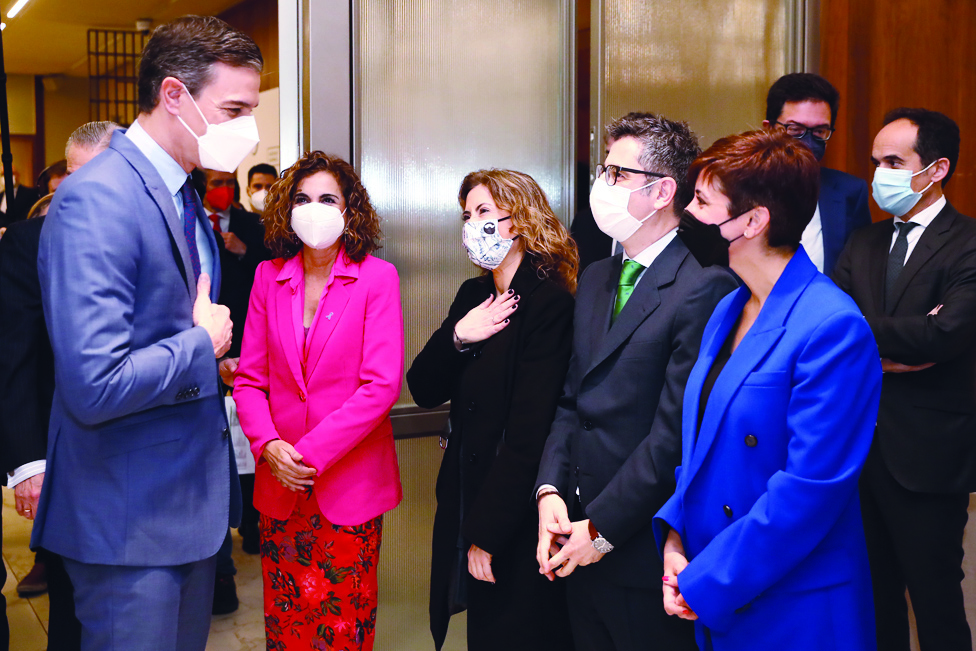MADRID: Spanish Prime Minister Pedro Sanchez unveiled Monday plans to offer €6.0 billion ($6.7 billion) in direct aid and fuel subsidies to ease the economic impact of Russia's invasion of Ukraine. Details of the long-awaited emergency response plan were unveiled as Spain struggles with a growing wave of social unrest over runaway inflation and rising prices, sparking a truck drivers strike, production stoppages and mass protests by farmers and fishermen.
First mentioned just days after the war began on February 24, the plan-which includes measures to address spiraling fuel prices and will remain in force until June 30 -- will be approved at Tuesday's cabinet meeting. It will release "approximately €6.0 billion in direct aid and tax rebates and 10 billion euros in state-guaranteed loans to cushion the impact of the crisis on families and businesses", Sanchez told a business forum.
The government plan would also include "a minimum reduction of 20 cents per liter of fuel", Sanchez said. Of that reduction, 15 cents would be financed by the government and five cents by the oil companies. On Monday, average petrol prices in Spain ranged between €1.84 and €1.98 per liter, while diesel stood at between €1.86 and €1.95, according to dieselogasolina.com.
Last week, the government announced a similar reduction but only for lorry drivers, with the new reduction to impact everyone. The plan also extends until the end of June tax cuts already in place such as the reduced rate of VAT on energy and a suspension of tax on electricity production.
It also includes a €362 million aid package for the agriculture and farming sector, €68 million for the fishing and aquaculture industries, a two percent cap on rental increases and a 15 percent increase in the income support to help the most vulnerable. In total, it was an investment of €16 billion to "ease the impact on families and businesses," Sanchez said.
Spain saw consumer prices surge to their highest level in almost 35 years, with inflation jumping to 7.6 percent in February, against a backdrop of soaring energy costs, worsened by the war in Ukraine. On March 14, lorry drivers launched an open-ended strike over mounting fuel prices, staging roadblocks and picket lines and leaving supermarkets with empty shelves and several sectors struggling to cope. Fishermen also staged a mass strike last week over diesel prices, while the livestock and farming sector have also hit the street in protest over rising costs, including that of animal feed costs. - AFP











